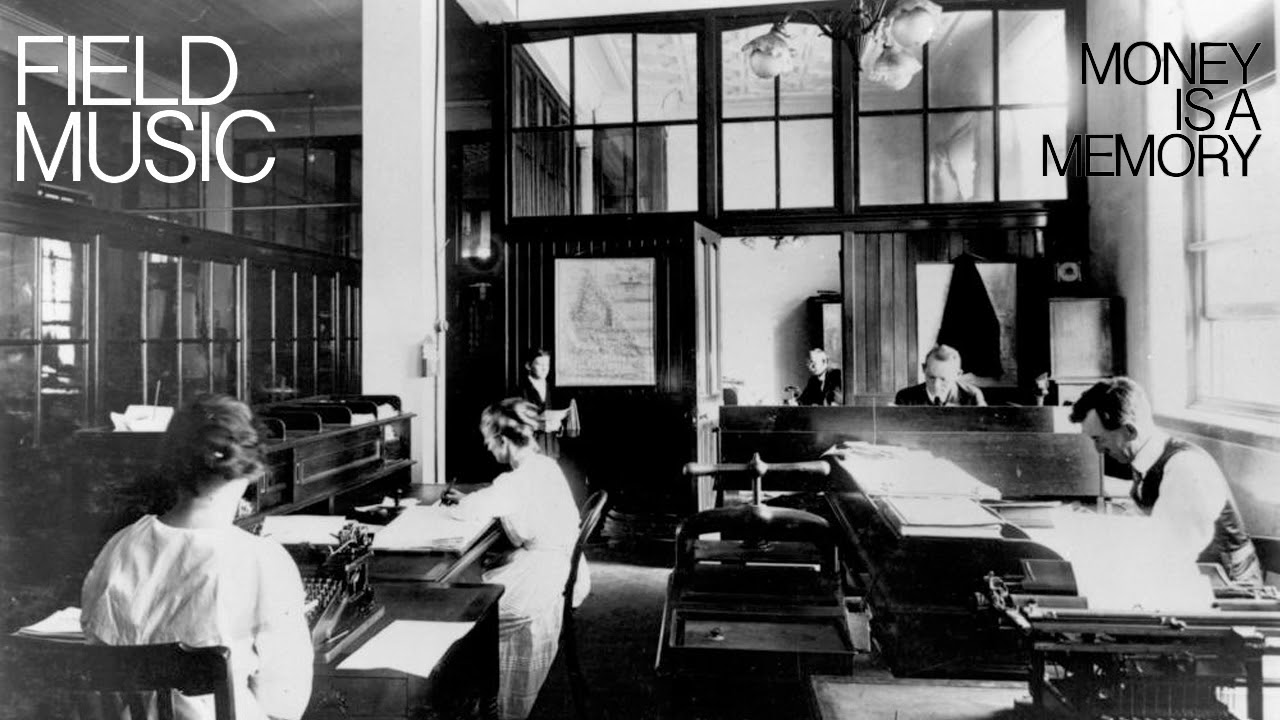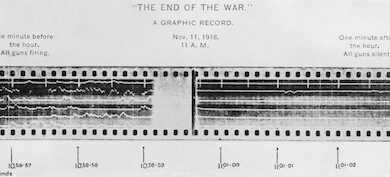I was born on 11 November – Armistice Day. My parents instilled its importance in me. My maternal grandfather fought in the second world war and was injured in the Normandy Landings. We were always told not to ask him about it, although he did once show me a belt he’d taken from the body of a German soldier. As an adult, I am conscious of the lingering influence Grandad’s trauma had on my mother’s upbringing and, indirectly, on my own. There are lines that can be traced; I grew up understanding the shadows both world wars cast across our lives.
So I was particularly interested to hear that David and Peter Brewis, of Field Music, have been commissioned by the Imperial War Museum to explore how the first world war has shaped the society we live in today. The resulting 18-song suite of new material will be performed at IWM North in Salford on 24 January as part of the museum’s Making A New World season, and at IWM London a week later.
I spoke to Field Music’s David Brewis to ask him about the process behind the commission and what the Salford audience can expect from this unique event.
“We used the sound range image as a starting point,” he says. “There are six parallel lines on that image, from six microphones spread out across the front in order to pinpoint enemy artillery. We imagine following those lines – we’re looking at how those vibrations have continued on and spread across all aspects of human life.”
David and Peter have highlighted events, moments or technological advances that happened during immediately after the war and then twinned them with directly related developments from the following 100 years. Each moment has its own piece of music, forming a compelling suite that is reassuringly Field Music in sound.
One song tells the story of New Zealand-born surgeon Dr Harold Gillies, who pioneered skin graft techniques in order to perform facial repair operations on wounded servicemen. Gillies became known as the father of plastic surgery, and in 1946 performed the first female-to-male gender reassignment operation.
Another, ‘Only In A Man’s World’, is the story of Wisconsin-based company Kimberly-Clark, who mass-produced ‘cellucotton’ for use as a surgical dressing for soldiers. It was later adapted to create Kotex, the first modern sanitary towel.
While not all the technological developments the brothers have covered could be described as positive, the songs have an optimistic air – was this a conscious thing?
“We were trying to be neutral about it. The consequences [of the first world war] were incredibly varied – from plunging the Middle East into a century of horror to finally having a sanitary towel that works. We didn’t want to put too much of a moral slant on the stories.
“And the consequences of war are absolutely still present. Wars, or other cataclysmic events, just have a habit of speeding things up. Someone would have figured out how to send a radio signal from an aeroplane at some point, but it happened in the first world war because they really, really needed it to. They definitely weren’t thinking, Well, this will be great for the future of the aviation industry.”
Field Music are working on film projections to accompany the music. What can we expect from these?
“It was important to have the text telling the stories within the visuals, otherwise some of the songs may have seemed a little vague. We’ve written instrumental sections at the beginning of each song so there is time for [the audience] to digest the story before the song starts properly. We’ll have imagery to represent each moment and then those six lines from the sound-range graphic will continue to vibrate and wobble through the whole piece. Our guitarist Kev Dosdale has the job of putting these visuals together and I have a feeling he’s going to be working up to the last moment on them.”
How were the stories unearthed?
“A lot of it was internet noodling – we chased stories we thought were interesting, and then started to look for an echo of that later in time. For example, we wanted to do something about tanks, because they were first used in the first world war, but we were conscious of what the imagery around tanks has been across time. The most iconic image – arguably – is the unknown man standing in front of a tank in Tiananmen Square, but how do you write a story about that without it being trite or downplaying the importance of it? Peter decided to focus on the photographer who took the actual picture, and once that angle emerged, the song came through.”
The penultimate song in the suite, ‘Money Is A Memory’, imagines someone in a back office at the German treasury gathering up the paperwork for the final payment on Germany’s war reparation debt. (The final instalment was paid in 2010; Hitler had made the injustice of reparations a central part of his rhetoric).
“I became fixated on the idea that someone in a finance office in the treasury had the job of making sure that this money gets paid,” says David. “The boring bureaucratic job that deals with this thing that affected the whole course of the 20th century. But their job is just to make sure that the paperwork is right.”
I tell David about my grandad, and how he didn’t talk about his experiences.
“I’m part of a generation that has never experienced anything like that… That’s why Peter and I didn’t want to write directly about the war. We can’t. We don’t have the context or the experience to do that in a way we could justify. That’s why I’m so glad we found these stories.”
Field Music play IWM North on Thursday 24 January, and IWM London Thursday 31 January. Tickets are available here. The music will later be recorded in a studio and released.




